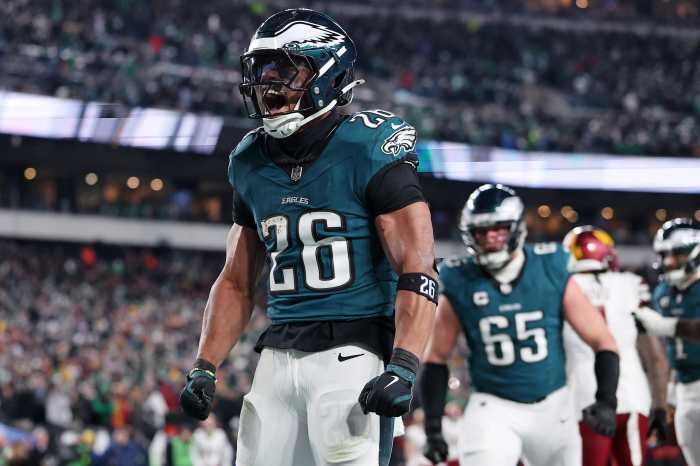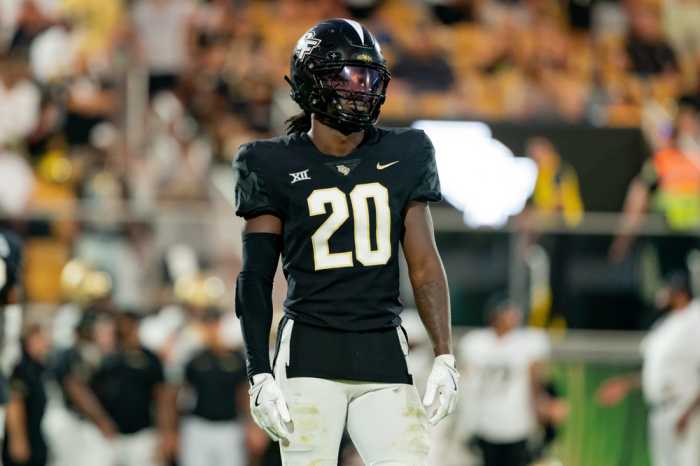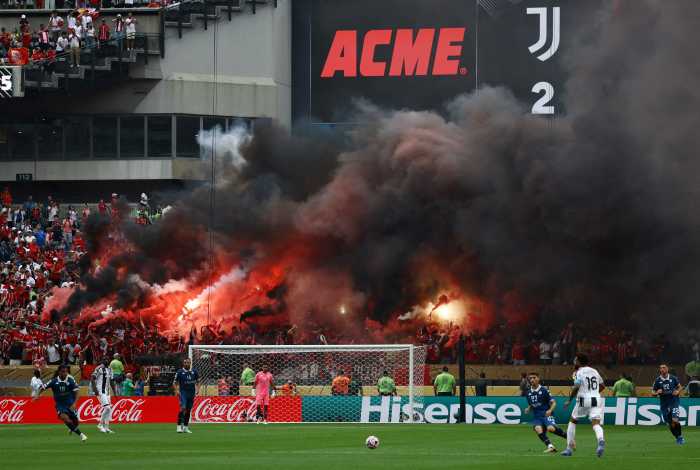Why each team makes the decisions they do is private, and rarely do they become public and offer insight into their reasoning of why they pass on the players that they do, or why they are willing to accept risk on another.
Bears pass on Jalen Carter
After the Bears traded their number nine overall pick to the Eagles in the 2023 NFL draft, which essentially meant they were passing on Jalen Carter, their GM, Ryan Poles surprisingly did explain.
“I will say that our culture is important. I’ll say that we know where our roster is right now and what it can handle, & what it can’t handle. I think that’s part of being intelligent in this space, is knowing your locker room and where it’s at. I’m happy we made the decision that we made. Specifically, on Jalen, I think he went to a fantastic place that has, their cement dry in their foundation.”
Reading into his statement, the Bears’ brass felt that their team couldn’t handle the distraction and that the Eagles were currently structured with a stronger foundation and had the veteran leadership that could handle the extra baggage that Jalen Carter could potentially bring with him.
Not mentioned in his explanation is the fact that the Eagles not only have a strong core of veterans who lead the team on the field and in the locker room, but they also have a lot of Carter’s former Georgia Bulldog teammates.
And the former teammates are not people he considers to be friends, but who he refers to as family. People whom he trusts, and more importantly, people he knows who have his back and who care about him.
So with that “dry cement foundation” the Eagles were willing to make a move and take a calculated risk.
They had the aforementioned former teammates which gave them intel and insight that no other team in the league had the benefit of having.
And with the 9th pick in the 2023 NFL draft, the Philadelphia Eagles select:
Jalen Carter, defensive tackle, Georgia
Why did the Eagles select Jalen Carter?
The unique insight into that situation led me to learn more about how NFL teams went about evaluating players who have had a complicated or checkered past.
I reached out to many people, but most declined to comment, luckily, a handful were willing. I also utilized a couple of studies on the topic.
Study: Off-Field Issues Create NFL Draft Bargains
In one conversation, a team employee cited an independent study that found NFL teams under-value players who have had off-field character issues. The study compared players drafted with the picks immediately before and after the players with the perceived character issues and found that those players with off-field character issues outperformed those drafted right before and after. The team’s study indicated that they were being devalued too harshly in the draft versus the production they were having in the NFL.
A study by Hamilton College also found similar results.
Hamilton College Professor of Economics Steve Wu and 2012 grad Kendall Weir analyzed five years of NFL draft data. The pair studied three categories of “character/behavior” from collected data on more than 1,200 players.
Category 1 Players who were arrested but not charged.
Category 2 Players who were arrested and charged.
Category 3 Players who were suspended for other reasons (but not arrested) The suspensions were more behavioral-based. Ex: Issues with teammates, coaches, or team rule violations.
“What we found was, conditional on where they were picked in the draft, (players) that were arrested, but not charged with a crime, were predicted to start more games and play more games. So, in that sense, given where they were selected, they were somewhat under-valued, or they were over-penalized for their character concerns.” Steve Wu
The one outlier to the findings was category 3. This group of players who had issues with teammates and coaches, personal relationship issues, and ones who broke team rules was a red flag.
“Different types of character issues may affect on-field performance differently. Specifically, it seems that the folks who have issues on the field with coaches, other players, they are ones that are more affected on the field in terms of performance, whereas the ones who have run-ins with the law or other types of issues, while that may be bad for a whole other set of reasons, at least in terms of on-field performance, they’re doing better than the expectation.” Steve Wu
In short, players who had been charged with a crime were selected approximately 15 spots later than their counterparts without a history of issues who had similar college stats, combine results, and scout rankings. College players who had been suspended for a game in college for breaking a team or university rule were drafted 25 spots later. The study indicated that breaking a school rule was more damning to a player’s future success in the NFL than breaking the law.
The primary measure of ‘performance’ is average games started, and using this measure, those who have been arrested but not charged perform better than those with no arrests, charges or suspensions. Players who were arrested and charged perform no better or worse than ‘clean’ players. And those who have been suspended for another reason perform significantly worse than the ‘clean’ group.” Steve Wu
Common Reasons Teams Pass or downgrade value
Not treating their career as a profession
A great athlete without an elite skill set
The player enjoys being a celebrity more than a football player
Recurring injuries
Poor performance at the combine
Issues with teammates and coaches
Off-Field Issues
Drug usage
Theft
Players Examples
The Carolina Panthers selected Cam Newton 1st overall. He had been in trouble for reportedly stealing a laptop. He had a great career.
The Tampa Bay Buccaneers drafted Warren Sapp who had reportedly failed a drug test at the combine. He dropped to 12th overall. He is in the NFL Hall of Fame.
The Minnesota Vikings drafted Randy Moss with the 21st pick after his stock fell due to an alleged fight in High School that caused Notre Dame to deny his enrollment. He then “transferred” to FSU, allegedly tested positive for marijuana while in a work release program, and was dismissed from their program. He finally landed at Marshall University where he had 174 catches for 3529 yards and 54 touchdowns in 2 seasons. He is now in the NFL Hall of Fame.
Not all of the risks work out, as the Rams learned by taking a chance on Lawrence Phillips despite having numerous red flags. They drafted him 6th overall. He ended up in prison and years later, in 2016, was found unresponsive in his cell. A coroner determined that Phillips had hanged himself.
Conclusion
A GM is more likely to select a player who has been in trouble with the law over one who has had issues with their University or college football team, due to the data suggesting those players fare better and have a higher projected performance of games played and on-field success. The NFL Draft is where teams build for their future.
Every team has a lot of the same intel, but the ones who navigate risk assessment regarding injuries, background, and projecting future production will usually come out on top. As the Eagles proved last year, having a locker room filled with strong character allows the freedom to take on a risk some other teams will not.
As always, thank you for reading!
Follow me on X @PHLEagleNews
AP Photo/Chris Szagola




























